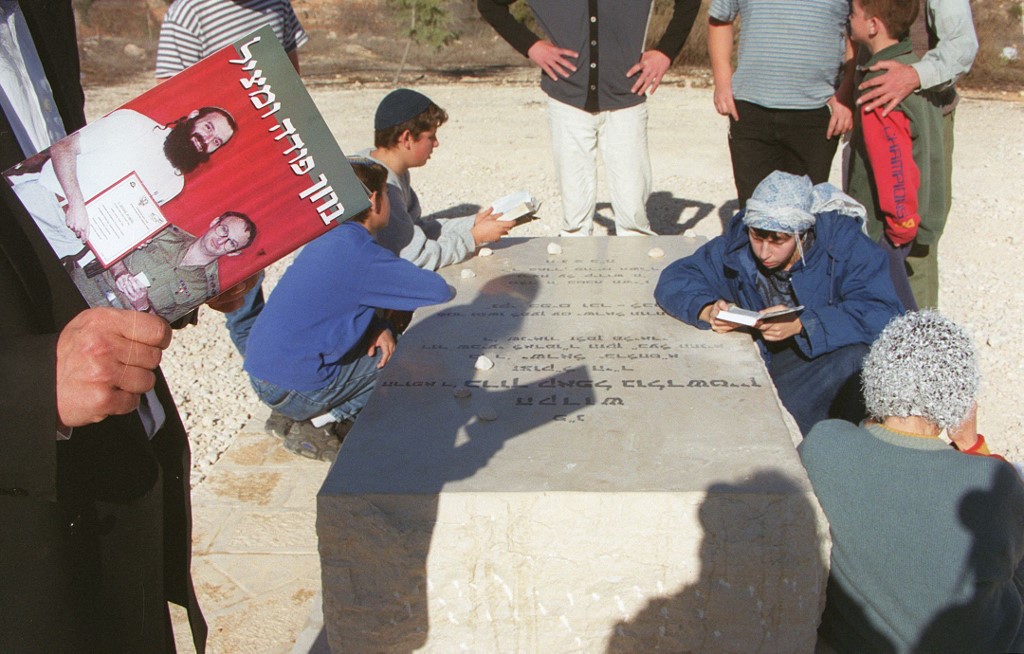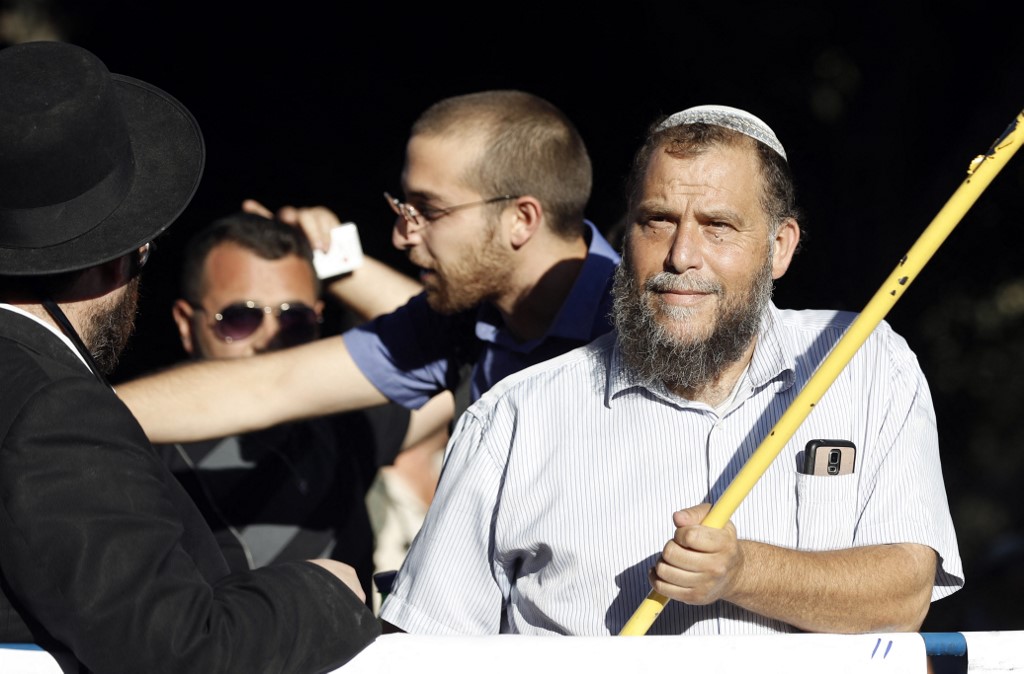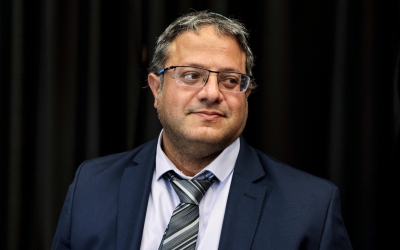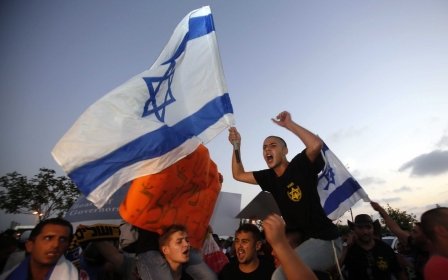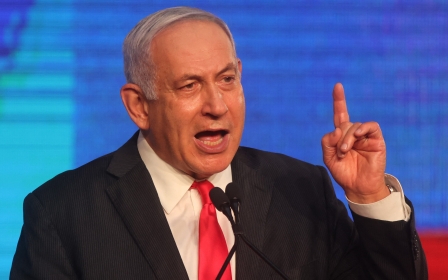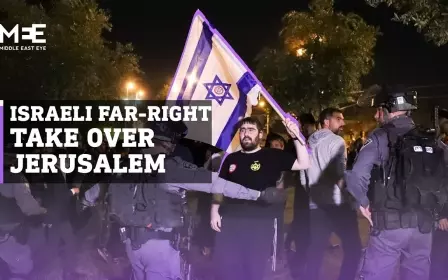Lehava: The anti-Palestinian, far-right Israeli group marching in Jerusalem
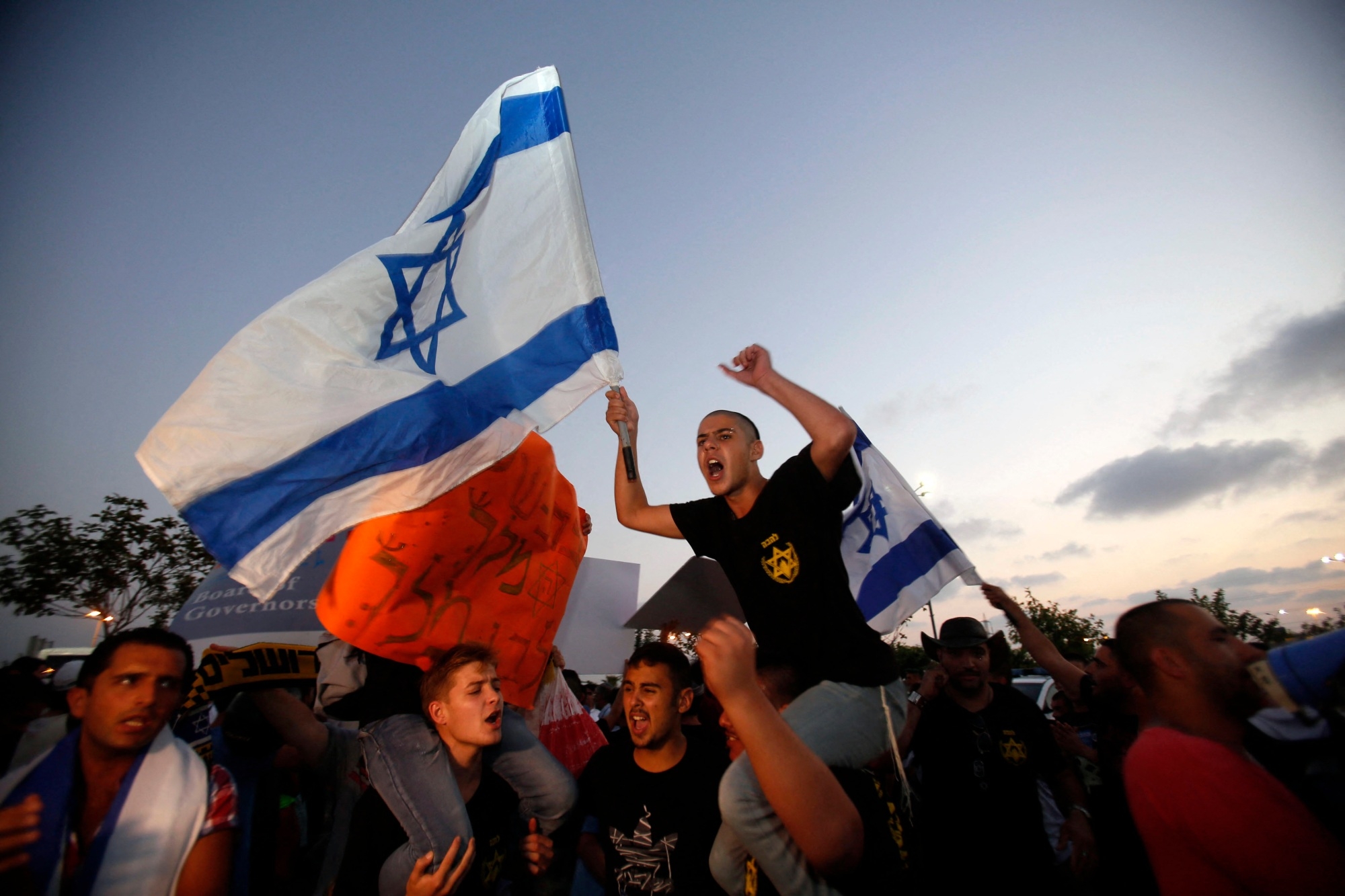
Expelling Palestinians to Arab countries, annexing the occupied West Bank to Israel, calling for a ban on Christmas, urging a Jewish-Israeli model not to marry Leonardo DiCaprio: these are just a few of the most attention-grabbing demands of Lehava, a far-right, anti-Palestinian Israeli organisation, whose followers rallied recently in occupied East Jerusalem, shouting “Death to Arabs”.
These marches in Jerusalem have once again drawn attention to the group, which was founded in 2005 by followers of former Knesset member and extremist Kach party founder, Rabbi Meir Kahane.
Lehava, which means "flame" in Hebrew, is the acronym for "Prevention of Assimilation in the Holy Land". As its full name makes clear, the group's primary goal is preventing "Jewish assimilation” and "miscegenation" - marriages or relationships between Jews and non-Jews, be they Palestinian, Muslim, Christian or other.
The group - and its founder, 51-year-old Bentzi Gopstein - is part of a growing extremist religious movement making up the Religious Zionism political bloc, which entered the Knesset triumphantly following parliamentary elections in March. With Religious Zionism winning six seats, Lehava has come under further scrutiny because of its growing influence in Israel.
Kahanist inspiration
The ideas and beliefs of Lehava come straight out of Kahane's ideology. Born into an Orthodox Jewish family in New York in 1932, Kahane believed in a homogenously Jewish state run according to the Torah.
He called for the complete expulsion of Palestinians by force from their lands, and the annexation of the occupied West Bank. Kahane's followers believe that the West Bank - occupied by Israel since 1967 in contravention of international law - and the eastern slopes of Jordan are part of the biblical kingdoms of Judea and Samaria.
Going further, Kahane also believed in the Zionist conception of a Greater Israel, considering the Sinai Peninsula, Lebanon, Syria and lands stretching to the Euphrates river in Iraq as the “homeland for Jewish people”.
Until this day, Kahanists oppose marriage between Jews and non-Jews, as well as LGBTQ rights, believing they contravene Jewish religious texts. The rabbi's followers have called for the destruction of the Al-Aqsa Mosque in the Old City of Jerusalem, which they believe was built where the Second Jewish Temple once stood, in order to build a Third Temple in its place.
Kahane was assassinated in 1990 in New York, but his legacy has inspired many since. In 1994, one of his followera, US-born Baruch Goldstein, stormed the Ibrahimi Mosque in the southern West Bank city of Hebron, killing 29 Palestinians performing dawn prayers during the Muslim holy month of Ramadan before being killed on the spot.
Both Kahane and Goldstein have become idealised figures among Israeli far-right settlers, with Goldstein's grave in the illegal settlement of Kiryat Arba frequently visited by settlers during national holidays.
The US State Department put Kach and Kahane Chai, two factions that emerged from Kahane’s original Kach party, on its list of foreign terrorist organisations following the Ibrahimi Mosque massacre. The Israeli government followed suit, banning and declaring the two organisations to be “terrorist” groups.
Kahane was a lone wolf in the Knesset when he was elected MP in 1984 for one term. Now, his followers of the Religious Zionism bloc have won six seats in the parliament, endorsed by Prime Minister Benjamin Netanyahu in a bid to weaken his opposition and form a national coalition government.
Gopstein, the leader of a crusade against 'vampires'
Despite forming 15 years after his death, Lehava continues to be draw direct inspiration from Kahane. Since its emergence, the organisation was primarily known for its outspoken anti-miscegenation platform, whether through leaflets, protests or acts of violence against Palestinians in relationships with Jewish Israelis.
In one of its most attention-grabbing actions, Lehava protested the marriage of Mahmoud Mansour, a Palestinian citizen of Israel from Jaffa, and Morel Malka, who converted from Judaism to Islam, in a case that became the talk of Israel in 2014.
The group's supporters camped out of the couple's wedding hall, shouting “Arabs beware, my sister is not fair game”, and “no existence with Arabs.” Gopstein, Lehava's founder, called out to the bride with a loudspeaker: “God is weeping in heaven over you, Morel. We are calling you, return home.”
In 2015, Gopstein, who lives in an illegal settlement in the West Bank, called for a ban on Christmas celebrations in Israel, calling Christians "vampires”.
“Christmas has no place in the Holy Land," he wrote. "The mission of those vampires and bloodsuckers remains. If Jews cannot be killed, they can be converted. We must remove the vampires before they drink our blood once again," he added.
He was questioned by Israeli police in 2015 after he justified burning churches in Israel, following an arson attack at the Church of the Multiplication on the shores of the Sea of Galilee in northern Israel.
Gopstein had argued that such attacks were in accordance with the Jewish commandment ordering the destruction of places of idol worship.
That same year, three members of Lehava were charged with torching a Jewish-Palestinian school in Jerusalem and spraying graffiti on the walls saying, "There’s no coexistence with cancer." Gopstein backed his group and their tactics at the time.
'Don’t marry Leonardo DiCaprio'
But Gopstein is not the only figurehead of the movement. Itamar Ben-Gvir, the lawyer defending Lehava's almost 10,000 followers in cities across Israel, holds considerable influence in the movement.
Ben-Gvir, who was recently elected to the Knesset, is also the leader of Otzma Yehudit (Jewish Power), a party founded in 2012 by Kahane and Kach followers. The party is part of Religious Zionism, alongside Bezalel Smotrich’s National Union–Tkuma and Avi Maoz’s Noam Party.
Netanyahu has pushed these parties to form an alliance prior to the March election in a bid to weaken his opposition and form a far-right coalition government. But the prime minister is running out of time to form a government, and if he fails, this could put Israel on the path for a fifth election in a little over a year.
Michael Ben-Ari, a former Knesset member and one of Kahane's students, and Baruch Marzel, a US-born settler leader in Hebron, are other prominent Lehava leaders.
In 2012, Ben-Ari, who is a member of National Union–Tkuma, was refused entry into the US over his links to Kach.
Marzel, meanwhile, urged Jewish-Israeli model Bar Refaeli in 2010 to not marry her then-boyfriend, actor Leonardo DiCaprio, who was raised as a Catholic.
Marzel, who is well-known in Hebron for his calls in favour of the ethnic cleansing of Palestinians, sent Refaeli a letter on behalf of Lehava asking her to come to her senses.
“Don’t marry Leonardo DiCaprio. Don’t harm the future generations,” he wrote, according to The Jerusalem Post. “Your grandmother and her grandmother did not dream that one of their descendants would one day remove the family’s future generations from the Jewish people. Assimilation has forever been one of the enemies of the Jewish people.”
Mysterious funding
After some 16 years in existence, Lehava's web of funding remains a mystery.
Israeli newspaper Haaretz revealed in 2011 that Lehava was not officially registered as a non-profit organisation (NPO), though its members and activists are connected to Hemla, an Israeli NPO that helps girls from broken homes and "in danger of forced conversion" from Judaism to other faiths.
Gopstein, who is both chairman of Lehava and public relations director of Hemla, reportedly received a yearly salary of 40,000 shekels ($10,200) per year from the latter.
Hemla - which also provides assistance to another far-right settler group, the Hilltop Youth - has received funding from Israel’s social affairs ministry, according to Haaretz.
Since 2005, government funding to Hemla has amounted to between 600,000 and 700,000 shekels ($152,950 to $178,470), representing around half its yearly budget.
As Lehava-linked leaders have gained ground in politics, their far-right, Jewish supremacist ideas have the potential to further influence the country and those who govern it.
This article is available in French on Middle East Eye French edition.
Middle East Eye propose une couverture et une analyse indépendantes et incomparables du Moyen-Orient, de l’Afrique du Nord et d’autres régions du monde. Pour en savoir plus sur la reprise de ce contenu et les frais qui s’appliquent, veuillez remplir ce formulaire [en anglais]. Pour en savoir plus sur MEE, cliquez ici [en anglais].



